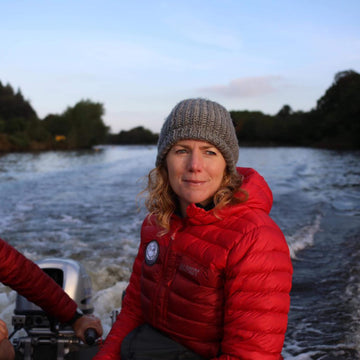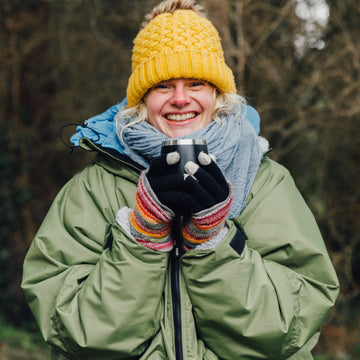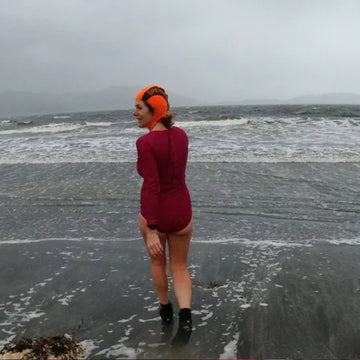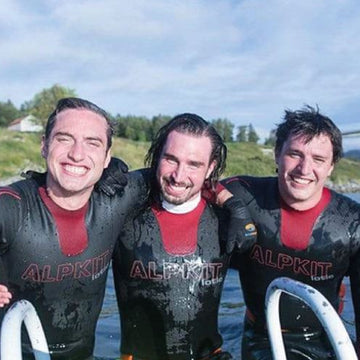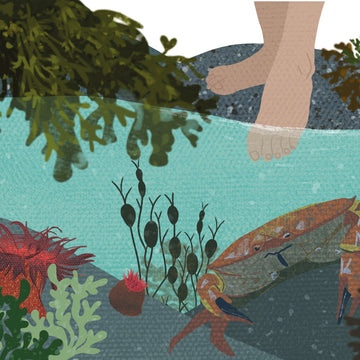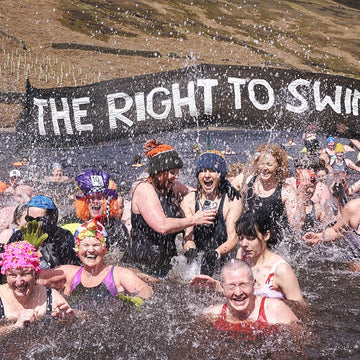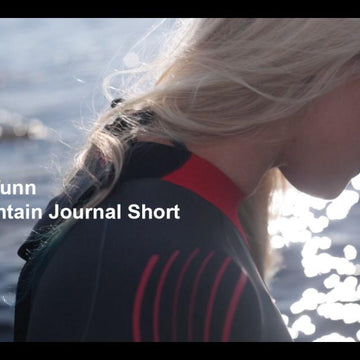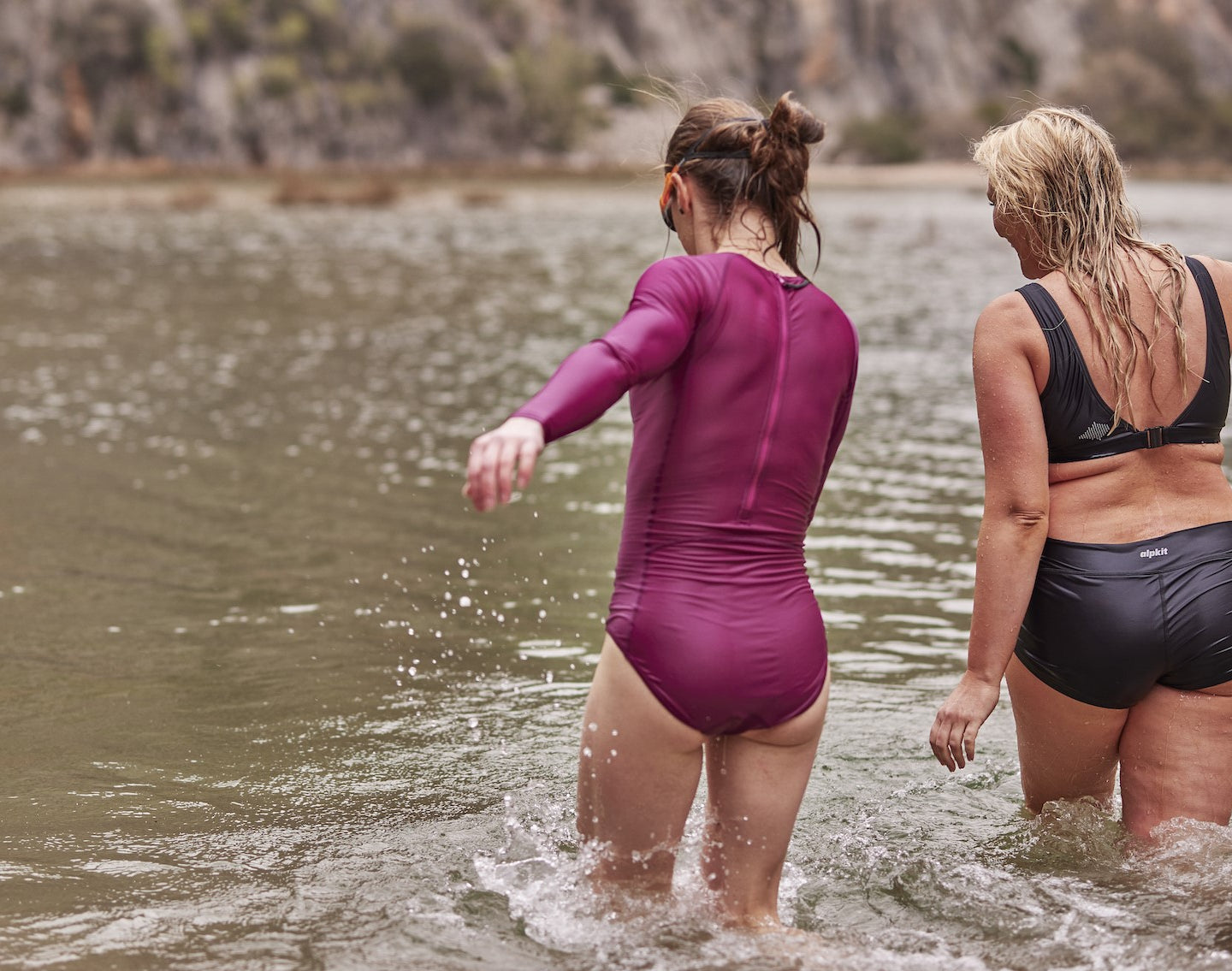
Our guide to open water swimming covers everything from where to swim to what to bring. Learn how to start swimming wild in the UK's natural waters.
Wild swimming is one of our favourite ways to be brave, get in touch with nature and reset. If you haven’t tried it yet, you really, really should. There’s nothing quite like it. Whether you just want to dip in a toe, or you are ready to take the plunge it is ok you are amongst friends here.
Our introduction to wild swimming
- What is wild swimming?
- What are the benefits of swimming outdoors?
- Where can you swim outdoors?
- What kit do you need to go outdoor swimming?
- What time of year is best to go outdoor swimming?
- Extending your wild swim with SwimRun
- Wild swimming safety
- Our favourite swim films
- Outdoor swimming kit

What is wild swimming?
Wild swimming is swimming in the great outdoors. It is also known as open water swimming or outdoor swimming but we especially like the sense of romanticism wild swimming enthuses. What ever you want to call it, we are referring to swimming in natural water sources like lakes, tarns, reservoirs, rivers, and seas, as opposed to man-made pools.
You can make your outdoor swim as wild as you want it; swimming in whirlpools, finding inspiration in cold waters, racing through mountains or finding your community amongst a group swim are just a few examples you will find listed on our site. Go ahead and explore, there are many more to uncover.

What are the benefits of swimming outdoors?
Health benefits include cold water's potential to boost mood, improve well-being, and stimulate blood flow. In short? There are so many. The Wild Swimming Brothers even list 50 reasons to start wild swimming! But we thought we’d give you just a few:
What it does for your head
- It puts you at water level and allows you to experience the natural world on nature's terms
- It causes a decrease in cortisol and other stress hormones
- It removes the frustration of the dreaded swimming lane traffic
- It's uninterrupted time to clear your head and be mindful
What it does for your body
- It improves your ability to manage the cold
- It boosts the immune system, increasing your white blood cell count. The cold water acts as a mild antagonist, activating and training your immune system
- It soothes any vestigial muscualr aches
- It's exciting! You're in an envrionment you're not used to, adding a bit of fun to your regular activities
What it does for your heart
- It instils a sense of adventure in you
- It enhances your awareness and knwoeldge of biodiversity
- It's hard not to smile and laugh
- It's a bonding social activity
Additionally, the wild swimming community emphasises respect for the environment, promoting practices like leaving no trace and ensuring the cleanliness of water sources.
Where can you go wild swimming?
We have many inland waterways in addition to our beautiful coastline, but unfortunately it is not always clear where you have the right to swim. We discuss this in more depth in Where can I go wild swimming?. The article delves into access, the right to roam and how you can get involved with communities of swimmers trying to make a difference.
In our Go Swimming. Open up water webinar we saw an incredible line up of activists such as Alistair Humphreys, Kate Rew and Nick Hayes discussing trespass, inland water access and the right to roam. In May 2023, 91 years on since the original Kinder Trespass helped give us rights of way over land, 500 swimmers gathered at Kinder Reservoir asking for the same right in water.
If you are just after a quick start we also list 10 of our customers favourite wild swimming spots.

What kit do I need to go wild swimming?
Top of most peoples concerns are how do I stay warm when wild swimming? The answer for most is a wetsuit. We have put together a guide to choosing a wetsuit for swimming in the outdoors. Some of the most memorable wild swims are those last-minute-skinny-dips. But if you fancy being more prepared, here's our checklist:
What to wear when swimming outdoors
- Mens swimming wetsuits and swimming costumes
- Womens swimming wetsuits and swimming costumes
- Goggles and silicone swim cap
For brain-freeze-inducing dips
- Neoprene cold water swimming cap
- Neoprene socks
- Neoprene gloves
- Towel
- Bobble hat
- Warm layers
- Changing robes to stay warm and get changed after your dip.
Safety equipment
- Tow float for high visibility in open water
- Small first aid kit for any bumps, scrapes and stings
- A bottle of water
- A flask with tea, coffee, hot chocolate or soup
- Your favourite snack
- Sun protection - a hat, sunglasses and SPF
- Headtorch for early morning or late evening walk-ins and walk-outs
- Dry bag for your wet kit
- Map, compass, electronic devices and a rucksack to carry it all in

What time of year is best to go wild swimming?
Whenever you want to! You can swim all year round. But if it’s your first foray into the world of wild swimming, easing yourself into a late summer is probably best. You need less kit and warming up after is less of a challenge.
The sea generally fluctuates less in temperature. It stays between 12°C and 17°C for most of the year. Water gets nice and toasty in September when it’s had all summer to warm up. On the other end of the spectrum, some water can get really cold. Like, really, really cold. Below 5°C is officially considered ice swimming!
For some support to immersing yourself into colder waters read our guide to swimming in cold water.
Extending your outdoor swimming adventures with SwimRun
For some a cool relaxing dip is just fine. For others it is just the start of their aquarian adventures. SwimRun is one such offshoot which takes the concept of the long walk-in to combine fell running and wild swimming. Whether you engage competitively or use it as a way to deepen your closeness to nature as you traverse through the mountains there is no doubt that SwimRun has the potential to add another dimension to your wild swimming adventures. Find out more in our introduction to Swim-Run
Wild swimming safety
No lanes. No ropes. No supervision. Alongside its beauty, swimming in open water presents its own set of challenges and risks, such as cold water shock, currents, and underwater hazards. As a result, safety precautions, including understanding local conditions and hazards, are paramount. Get started with our 10 wild swimming safety tips.
Our favourite swim films
A Right To Swim
In 1932, Kinder saw the first mass trespass event, where hundreds of people gathered in protest for a right to roam. Just 91 years later, Alpkit is proud to support the Outdoor Swimming Society and Right to Roam in their campaign to open up access to England's natural places. Joined by more than 500 outdoor enthusiasts, Kate Rew and the team at OSS took to the waters at Kinder Reservoir as part of a mass trespass in a stance against restrictions on access to our waterways.
Chasing The Sublime
'Chasing the Sublime', a mesmeric glimpse at the physicality of long distance cold water swimming by award winning director Amanda Bluglass Why do we put ourselves into the path of discomfort and risk? What drives us to get too cold and too tired, to battle with fear, in the name of adventure?
Loch Hourn on the Knoydart peninsula in the Western Isles of Scotland is regarded as one of the last wildernesses of Europe. Access to sea lochs is difficult. Salt water mingles with fresh water as it runs off the mountains, icy even in high summer. This mesmeric film immerses us in the physicality of cold water swimming, asking why we put ourselves in the path of discomfort and risk; why does the search for adventure take us to ever more remote and in hospitable places?
Join the originators of The Outdoor Swimming Society, 'swim twins' Kate Rew and Kari Furre, as they set out to chase the sublime.
Mountain Journal Shorts
Kari Furre
Kari Furre is a Devon based artist and director at the Outdoor Swimming Society, there in the Lake District when the idea was born in 2005. Kari was also one of the early gold Duke of Edinburgh Award girls, back when women did not do things like this on an equal footing with the boys. In May 2016 she swam the 10.5 mile Lake Windermere in celebration of the 60th Anniversary of the DofE and continues to be inspired by her natural surroundings, particularly when it comes to water!
Katie Tunn
Katie Tunn lives in the Northern most house on Skye - A love of the sea, powerful landscapes and ocean conservation drew Katie from Windsor and London to live in the inner Hebrides
Hydrotherapy
Hydrotherapy is a story of adaptation, strength & re-wilding set in the raw and beautiful landscapes of Snowdonia National park. Laura has not only overcome a life changing illness through wild swimming, but has also found a greater connection to the natural world. This has ignited her mission to make a stand for the natural environment, and protect wild waters and wild spaces across the UK.

![Straven [Womens]](http://alpkit.com/cdn/shop/files/womens-straven-2025-1.jpg?v=1744723504&width=768)
![Straven [Womens]](http://alpkit.com/cdn/shop/files/womens-straven-2025-3.jpg?v=1744723500&width=768)
![Tarka Wetsuit [Mens]](http://alpkit.com/cdn/shop/files/mens-tarka-2025-1.jpg?v=1744723498&width=768)
![Tarka Wetsuit [Mens]](http://alpkit.com/cdn/shop/files/mens-tarka-2025-4.jpg?v=1744730706&width=768)
![Tarka Wetsuit [Womens]](http://alpkit.com/cdn/shop/files/womens-tarka-2025-1.jpg?v=1744723496&width=768)
![Tarka Wetsuit [Womens]](http://alpkit.com/cdn/shop/files/womens-tarka-2025-3.jpg?v=1744730715&width=768)
![Terrapin Natural Swimming Wetsuit [Mens]](http://alpkit.com/cdn/shop/products/mens-terrapin-e.jpg?v=1695745450&width=768)
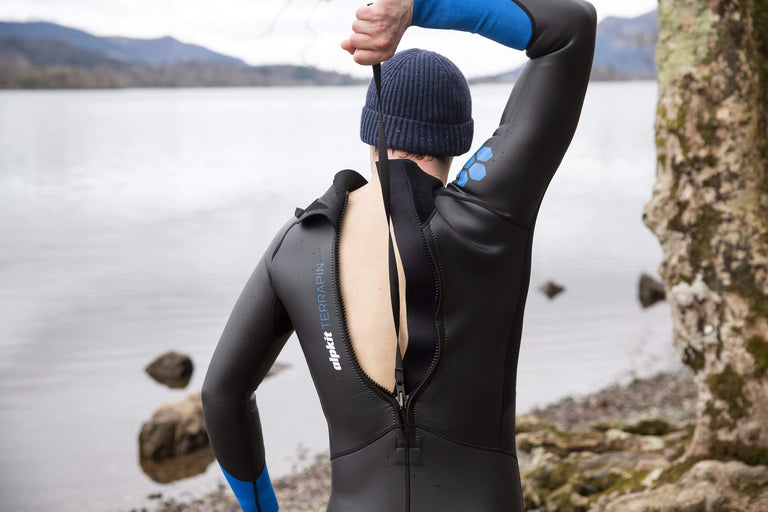
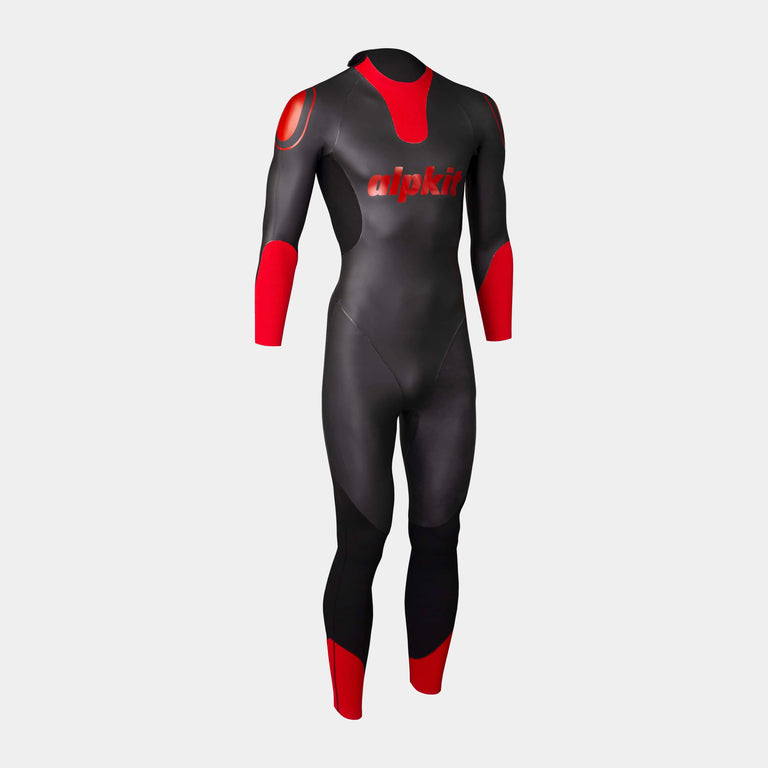
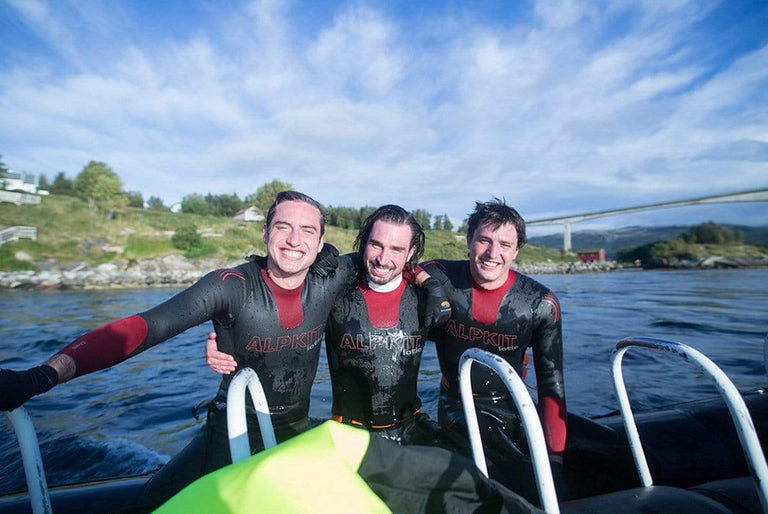
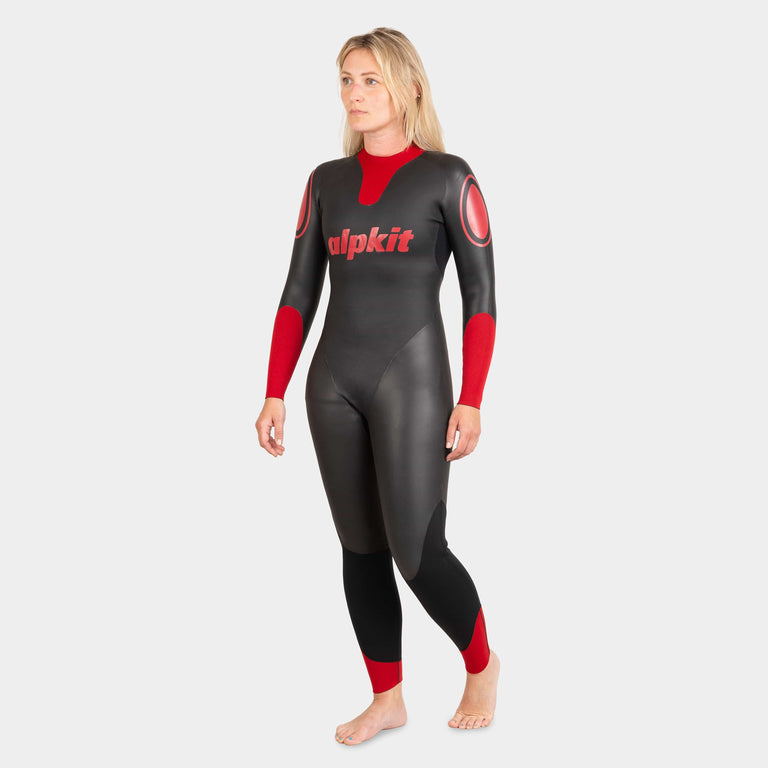
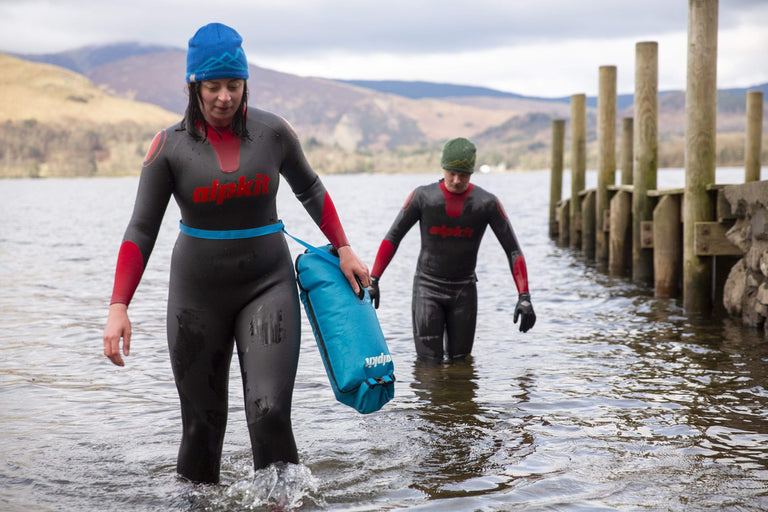
![Silvertip Cold Water Wetsuit [Womens]](http://alpkit.com/cdn/shop/files/silvertip-womens.jpg?v=1706614008&width=768)
![Silvertip Cold Water Wetsuit [Womens]](http://alpkit.com/cdn/shop/files/SWAKSILTSC-neoprene-outdoor-swimming-cap-in-water_758f3933-2d1a-471a-a965-24105416e9b2.jpg?v=1706614013&width=768)
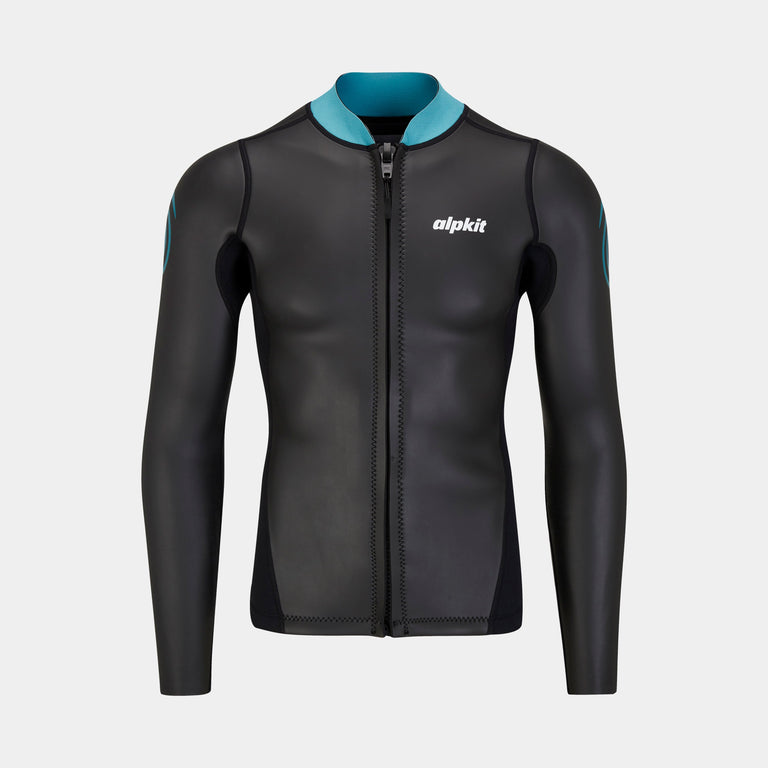
![Element Wetsuit Jacket [Mens]](http://alpkit.com/cdn/shop/products/element-mens-jacket-pants-ecom-2.jpg?v=1695902047&width=768)
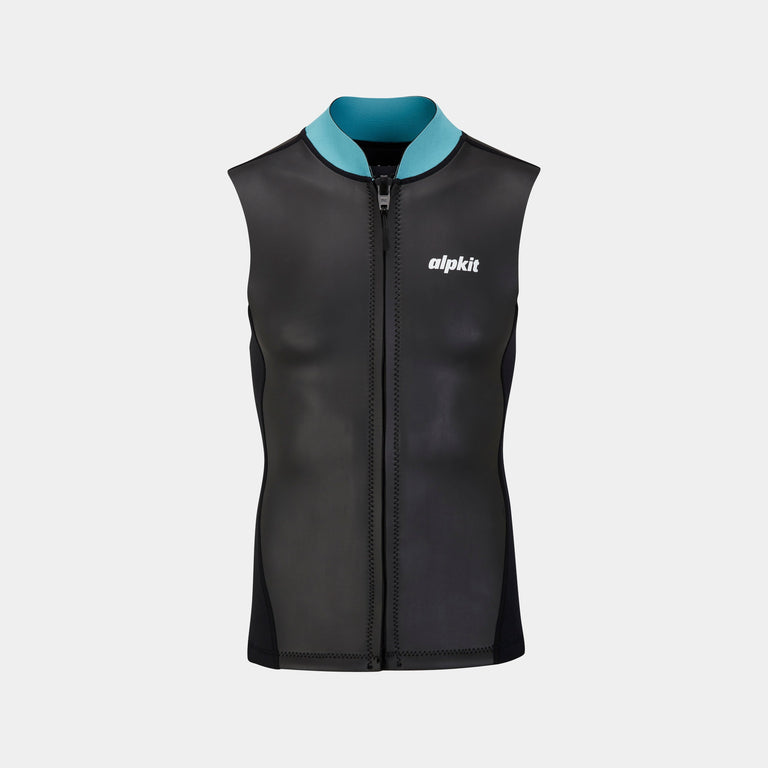
![Element Wetsuit Vest [Mens]](http://alpkit.com/cdn/shop/products/element-mens-vest-shorts-ecom-2_bed513c4-b564-4446-856d-d889f90f885e.jpg?v=1695902060&width=768)
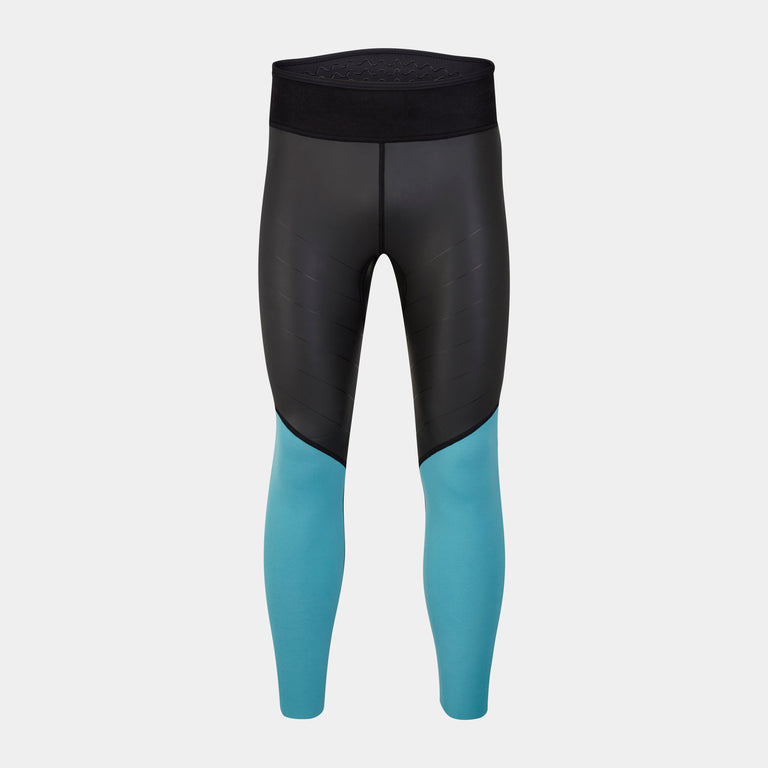
![Element Wetsuit Pants [Mens]](http://alpkit.com/cdn/shop/products/element-mens-jacket-pants-ecom-2_38dbf092-f607-4bbd-bd7a-0477da29bcef.jpg?v=1695902051&width=768)
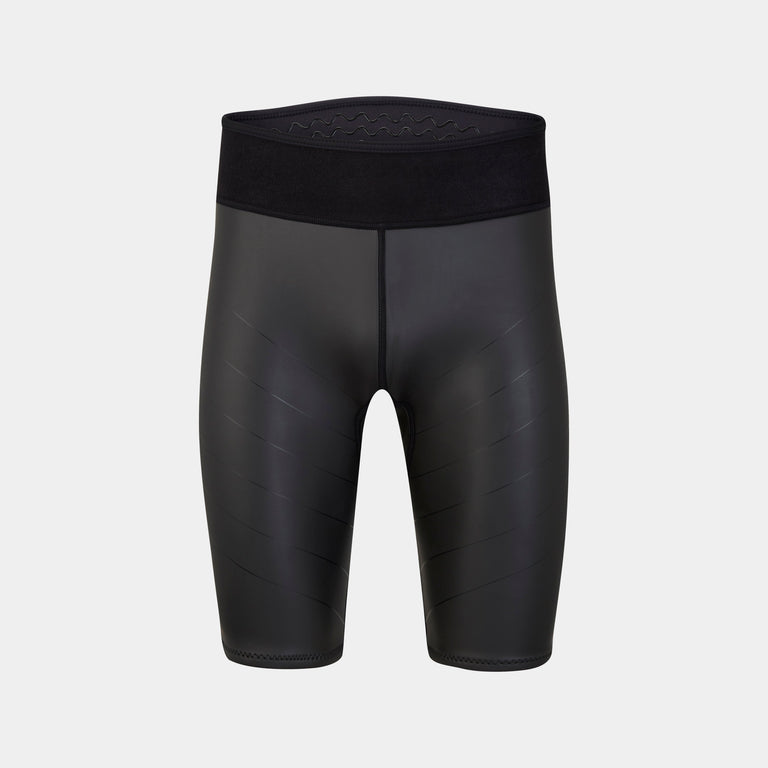
![Element Wetsuit Shorts [Mens]](http://alpkit.com/cdn/shop/products/element-mens-vest-shorts-ecom-2.jpg?v=1695902057&width=768)
![Element Wetsuit Shorts [Womens]](http://alpkit.com/cdn/shop/files/womens-element-shorts.jpg?v=1702653059&width=768)
![Element Wetsuit Shorts [Womens]](http://alpkit.com/cdn/shop/products/element-womens-vest-shorts-ecom-1.jpg?v=1702653054&width=768)
